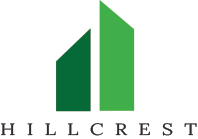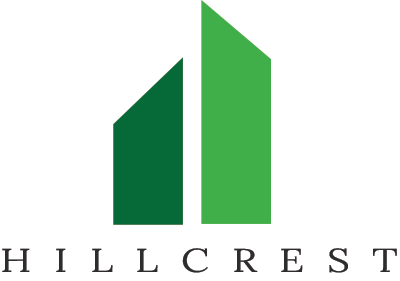HOA complaints are a common challenge for homeowners associations. While managing complaints and addressing them can be hard, it is important for HOA boards to understand how to do so in order to promote a harmonious community.
What are HOA Complaints?
Homeowner complaints typically arise when residents disagree with another homeowner, the HOA board, or a community rule. When not handled properly, complaints can escalate into disputes and cause a divide within the community. For this reason, HOA boards must address concerns as quickly and fairly as possible.
Common HOA Complaints
Complaints can vary from one association to another. That said, some complaints are more common than others. Here are the types of complaints that most HOA communities must deal with.
 Noise Complaints. Common noise complaints include issues with loud music, barking dogs, or construction noise.
Noise Complaints. Common noise complaints include issues with loud music, barking dogs, or construction noise.- Parking Issues. Homeowners may complain about unauthorized vehicles, blocked driveways, or commercial vehicles in residential zones.
- Property Maintenance Disputes. Residents may submit complaints concerning overgrown lawns, cluttered yards, or unapproved exterior changes.
- Pet-Related Complaints. Pets can be a source of frustration for neighbors. Common complaints include violations of leash laws, pet waste issues, or excessive barking.
- Neighbor Conflicts. Neighbor-to-neighbor conflicts are rather common. They usually involve disputes over property lines, harassment, or unauthorized surveillance.
- Amenity and Common Area Concerns. Homeowners may have complaints about pool maintenance, gym equipment, or clubhouse access.
- Board Transparency and Financial Concerns. Homeowners may raise allegations of fund mismanagement, lack of communication, or unfair rule enforcement.
What are HOA Violations?
Every homeowners association has CC&Rs and rules that govern the community. Homeowners must follow these rules or face potential fines. HOA violations occur when a homeowner breaks a rule. For example, a homeowner might park in a no-parking zone or fail to mow their lawn.
It is important to remember that violations can also change from one community to another. It really depends on the rules of that community. Moreover, consequences can also vary depending on the severity of the violation. For instance, a violation that endangers the safety of others may carry a larger fine than a simple violation of noise restrictions.
Common HOA Violations
Violations will depend on the types of rules a homeowners association has in place. That said, as with complaints, there are some violations that are quite common. This is because many HOAs have similar rules concerning aesthetics, maintenance, and property use.
Here are the most common HOA violations.
- Architectural Violations. This usually involves unapproved modifications or improvements to the home exterior, paint colors, and fencing.
- Landscaping Violations. Homeowners may have overgrown lawns, neglected gardens, or unapproved decorations or installations.
- Trash and Recycling Issues. This usually includes improper waste disposal and leaving bins out too long. This attracts pests and can lead to damage.
- Parking Violations. Homeowners may park RVs or boats in driveways, use unauthorized street parking, or allow their guests to park in restricted areas.
- Short-Term Rentals. Many HOAs prohibit short-term rentals or have restrictions on renting.
- Pet Policy Violations. Homeowners might exceed pet limits, keep unauthorized pet breeds, violate leash rules, or have aggressive animals.
- Holiday Decorations. This usually involves displaying decorations outside the holiday window, using excessive lights, or putting up offensive decorations.
How to Address HOA Complaints and Violations
When violations occur, board members must follow proper procedures and requirements. This process can differ from one HOA to another, so it is important to review the governing documents.
With that in mind, here are the general steps on how to address violations and complaints.
 1. Establish Clear Communication Channels
1. Establish Clear Communication Channels
HOAs must establish clear communication channels to effectively address complaints and violations. Homeowners should have multiple ways to report complaints, including email, online portals, or in-person meetings.
2. Inspect for Rule Violations Properly
Not all complaints hold merit, so board members must investigate each one properly. Sometimes, a homeowner will lodge a superficial complaint just to get even with a neighbor. If the board determines that a complaint is truly in violation of a rule, the board can then proceed with enforcement.
3. Enforce Rules Consistently and Fairly
Board members must enforce the rules in a consistent and fair manner. That means approaching each violation using a standardized process. Board members should issue violation notices in writing and allow owners the opportunity to be heard (765 ILCS 160/1-30).
When an HOA board enforces the rules selectively, it displays bias. Homeowners might accuse the board of playing favorites or specifically targeting certain people as a form of revenge. Selective enforcement not only undermines the board’s authority and destroys trust, but it can also render rules void.
4. Educate Homeowners on Rules and Responsibilities
Providing homeowners with copies of the CC&Rs and community bylaws ensures that they understand the rules. Boards should also encourage owners to attend meetings to raise concerns and clarify policies. Some complaints and violations stem from a lack of understanding, which makes education all the more important.
5. Provide an Appeals Process
HOAs should implement a fair and transparent appeals process, allowing homeowners to dispute violations through an independent review committee. Through an unbiased decision-making process, homeowners can feel heard. It also reduces the risk of legal action against the HOA.
6. Encourage Mediation for Disputes
 The HOA board should start with its internal dispute resolution process. If that does not work, the board can move forward with alternative dispute resolution (ADR), such as mediation and arbitration.
The HOA board should start with its internal dispute resolution process. If that does not work, the board can move forward with alternative dispute resolution (ADR), such as mediation and arbitration.
Mediation is an effective way to resolve conflicts between neighbors before they escalate. HOAs should encourage informal mediation sessions and work with professional mediators to find fair solutions. Mediation not only resolves disputes but also prevents costly litigation.
7. Handle Disputes Professionally
The HOA board must adopt a professional approach when dealing with disputes. It is never a good idea to involve personal feelings and vendettas. If a conflict of interest exists, the involved board members should recuse themselves from the situation to avoid the appearance of bias or impropriety.
HOA Complaints are Normal
Some HOA boards might roll their eyes at dealing with complaints, but complaints are a normal part of community living. The important thing is to know how to deal with complaints and violations when they arise.
Hillcrest offers HOA management services, including dealing with HOA complaints in Chicago. Call us today at 630-627-3303 or contact us online to request a proposal!
RELATED ARTICLES:
- Condo And HOA Rule Enforcement
- The Problem Of HOA Not Enforcing Rules And Selective Enforcement
- Can The Police Enforce HOA Rules?


